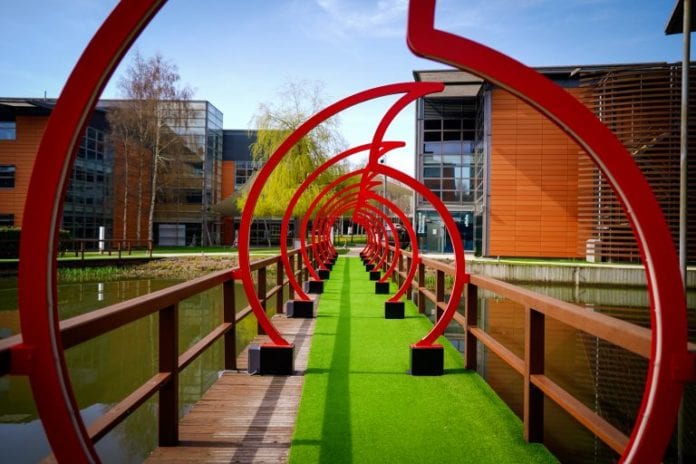U.K. telco Vodafone has announced the launch of an Open RAN (O-RAN) test and validation laboratory on its Newbury campus, the operator said in a statement.
The operator said that the new lab will be the first dedicated research and development facility for O-RAN in the U.K.
The test and validation laboratory, which will initially employ 30 engineers, follows Vodafone’s previous commitment to develop 2,500 mobile sites with O-RAN technology.
Vodafone highlighted that O-RAN technology is based on the concept of interoperability, meaning telecoms operators would be able to source equipment from a wider variety of suppliers. Most Radio Access Network (RAN) technology today is built on proprietary designs, which can tie operators to a small number of vendors. O-RAN standardizes the development of both hardware and software components to ensure all elements are interoperable, the carrier said.
Andrea Donà, Chief Network Officer, Vodafone UK, said: “The O-RAN ecosystem is still in its infancy, and we want to spur its development. We want to avoid a Catch-22 situation, where operators wait to buy perfect products, but the O-RAN vendors need investment to perfect their products. This is why we are announcing this investment in a new R&D lab, as well as committing to 2,500 O-RAN sites in the UK countryside.
“OpenRAN promises meaningful benefits, including innovation, competition, and carbon savings. But we’ll only deliver these benefits if we support the ecosystem,” the executive said.
“Vodafone is paving the way in building mobile networks with a variety of different equipment suppliers and its Newbury facility will put the UK at the forefront of the telecoms revolution – creating new jobs and opportunities for other firms,” Matt Warman, Minister for Digital Infrastructure, said.
In 2020, Vodafone claimed to be the first operator in the country to build a live open RAN 4G site.
According to Vodafone’s website, the operator has launched 5G in 100 U.K. markets and in an additional 193 markets around Europe. When the carrier first launched next-generation services in July of 2019, it did so in parts of Birmingham, Bristol, Cardiff, Liverpool, London, Manchester and Glasgow.
The carrier is actively working towards transitioning its current network to a SA 5G one and teamed up with a number of partners including Ericsson, MediaTek, OPPO and Qualcomm as part of this plan. Last year, almost exactly a year after its initial launch, Vodafone showcased its SA 5G network, built for Coventry University, claiming that it was the first live SA 5G deployment in the country.
Coventry University will use the new 5G network to trial virtual reality learning technologies to support training for student nurses and allied health professionals.

